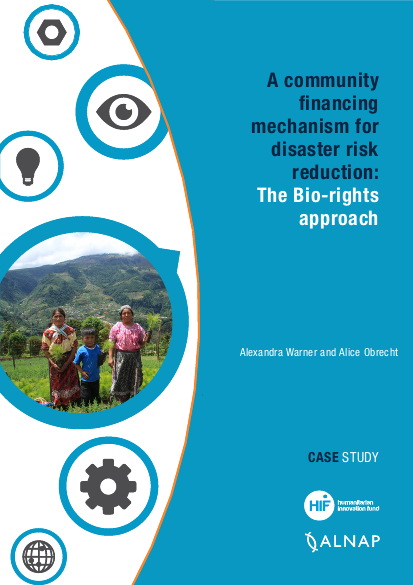
ALNAP and ELRHA will be looking at 15 different examples of humanitarian innovation funded by ELRHA’s Humanitarian Innovation Fund (HIF) grants. Each case study will explore the dynamics of successful innovation processes, culminating in a unique and in-depth study on innovation in humanitarian action.
This case study concerns a Bio-rights project carried out in partnership by CARE Netherlands and Wetlands International in western Guatemala. Bio-rights is a microcredit finance mechanism that unites community and ecosystem-based approaches to disaster risk reduction (DRR).
Was this a successful innovation process? What lessons about innovation were found? Each case study is part of a broader research that seeks to define and understand what successful innovation looks like in the humanitarian sector, and improve understanding of how undertake and support innovative programming can work in practice.